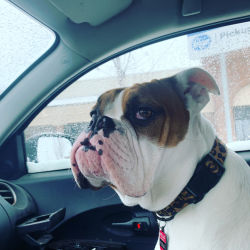Origins and Temperament
The Puggle is a charming blend of a Pug and a Beagle, a breed mix that has been warming hearts since the 1980s. Known for their playful and loving nature, Puggles inherit the best traits from their parent breeds. They are intelligent and friendly, with a hint of the Beagle's curiosity and the Pug's sociability. This unique combination of traits means that a Puggle's travel needs often include frequent interaction and mental stimulation to satisfy their inquisitive mind.
Size and Physical Needs
Puggles typically range from 18 to 30 pounds, standing at 10 to 15 inches at the shoulder. This compact size requires ample space during transport to stretch and relax. Being active dogs, they require moderate exercise to maintain their health and happiness. Additionally, their short nasal passages can make them prone to overheating, so they require a comfortable, climate-controlled environment while traveling.
Common Health Considerations
Puggles may be susceptible to the common health issues of their parent breeds, including respiratory problems, obesity, and hip dysplasia. It is essential to carry up-to-date health documentation when traveling, including proof of vaccinations and a clean bill of health from a veterinarian. Precautions should be taken to avoid strenuous activity in extreme weather and to have any necessary medications readily available.
















